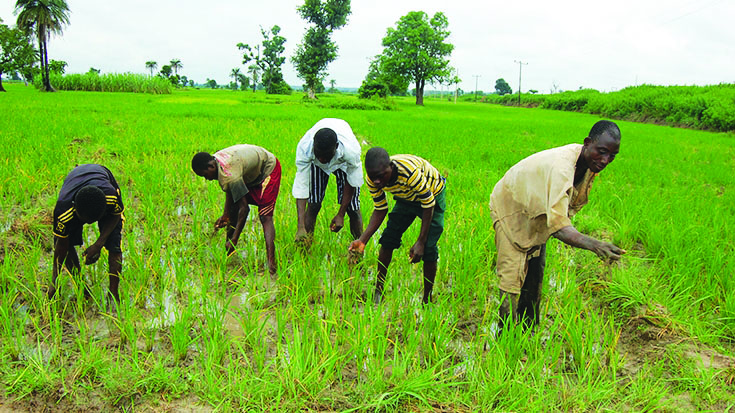Free Slots No Downloads No downloads are a great option to test your skills before you play betmarino güncel giriş
Investing in Agricultural Land: Opportunities and Challenges in Agricultural Real Estate Investments within the Nigerian Economy

As Nigeria seeks to diversify its economy and reduce reliance on oil, agricultural land investment presents a promising avenue for growth. With a population projected to surpass 400 million by 2050, the demand for food is expected to soar, making agriculture a critical sector for economic stability and development. However, while the potential is significant, investors must navigate various challenges unique to the Nigerian context.
Opportunities in Agricultural Land Investment in Nigeria
Food Security and Self-Sufficiency
Investing in agricultural land can contribute to national food security. With increasing local demand and a focus on self-sufficiency, investing in agricultural production helps reduce reliance on imports and supports national economic stability.Government Support and Policies
The Nigerian government has launched several initiatives to boost agricultural productivity, such as the Agricultural Promotion Policy (APP) and the Economic Recovery and Growth Plan (ERGP). These policies provide incentives for investors, such as tax breaks and access to grants, fostering a conducive environment for agricultural investments.Export Opportunities
Nigeria has a wealth of agricultural resources that can be leveraged for export. Cash crops like cocoa, cashew, and palm oil present lucrative opportunities for investors aiming to tap into international markets. The global demand for these products continues to rise, promising substantial returns.Technological Advancements
The rise of agri-tech solutions, including precision farming, digital marketplaces, and sustainable farming practices, is revolutionizing agricultural productivity in Nigeria. Investors who embrace technology can increase yields, reduce costs, and improve market access.Diverse Investment Avenues
Agricultural investment in Nigeria is diverse, covering areas such as crop production, livestock farming, aquaculture, and agro-processing. This diversity allows investors to align their investments with market demands and personal expertise.Promoting Sustainability
With a global shift towards sustainable practices, investors in Nigeria can leverage environmentally friendly methods to meet market demands for organic and sustainably sourced products. This can enhance profitability while contributing to ecological conservation.
Challenges in Agricultural Land Investment in Nigeria
Land Tenure and Ownership Issues
The complexity of land ownership in Nigeria, often influenced by traditional systems, can pose challenges for investors. Disputes over land rights and insufficient documentation can complicate transactions and create legal hurdles.Market Volatility
Agricultural markets in Nigeria can be unpredictable, influenced by factors such as climatic conditions, global commodity prices, and changing consumer preferences. This volatility can impact profitability and planning.Infrastructural Deficiencies
Many regions in Nigeria suffer from poor infrastructure, including inadequate roads and limited access to markets. These deficiencies can hinder agricultural production and distribution, affecting overall investment returns.Access to Financing
While various financing options exist, many investors still face challenges accessing affordable credit. High-interest rates and strict lending criteria can deter potential investors from entering the agricultural sector.Pests and Diseases
Agriculture is vulnerable to pests and diseases, which can lead to significant losses. Effective pest management strategies are essential for mitigating risks and ensuring sustainable production.Environmental Changes
Climate change presents considerable risks to agriculture, impacting weather patterns, soil fertility, and water availability. Investors must consider these factors in their planning and operations to ensure resilience.
Conclusion
Investing in agricultural land in Nigeria holds immense potential for contributing to economic growth, enhancing food security, and providing profitable returns. With the right strategies and awareness of local dynamics, investors can navigate challenges effectively. By leveraging government support, embracing technology, and promoting sustainable practices, agricultural land investment can be a cornerstone for Nigeria’s economic diversification and development.
Related Posts
Why Is Las Vegas the Best Internet Casino Site?
Yes, it’s perfectly legal to casino milyon güncel giriş bet on online gambling websites. However, if you are stalling because



